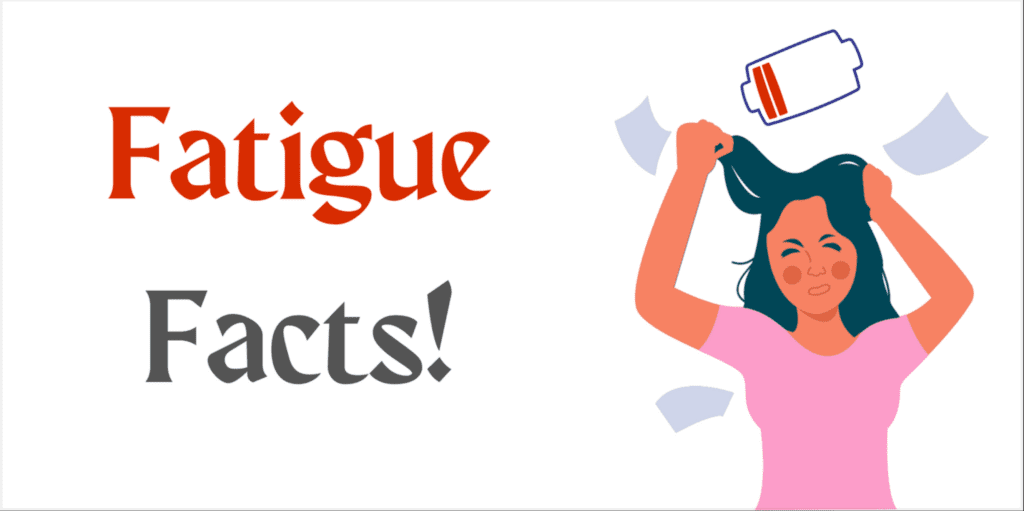The tips to fight fatigue are explained thoroughly in this article. The sensation of exhaustion is merely one component of fatigue. A fatigued individual may struggle to get out of bed in the morning and might be unable to perform the daily chores that are expected of him.
Although physical and mental exhaustion are distinct types of fatigue, they frequently occur together. As a result of chronic physical exhaustion, mental fatigue can develop over time. Inadequate sleep can also cause fatigue, particularly if it persists for an extended period of time. According to research, adults should get between seven and eight hours of sleep per night.
Many people can reduce their fatigue by following a healthy diet and engaging in regular physical activity. Treating the underlying reason for weariness, whether a medical problem or insufficient sleep, is also advantageous.
When the effects of fatigue endanger safety, it becomes a matter of public health. People who are extremely tired may exhibit behaviours similar to those of intoxicated people.
What are the causes of fatigue?
Many different health problems and lifestyle factors can contribute to fatigue. Clinical depression is frequently accompanied by fatigue, which can be brought on by the condition itself or related issues, like insomnia.
The following are some examples of mental health conditions that can lead to fatigue:
- Changing circumstances in one’s life, such as relocating or going through a divorce.
- Mental or emotional exhaustion, also called burnout
- Boredom
- Anxiety
- Eating disorders
- Bereavement and grief
- Stress
Several things can contribute to fatigue, including health conditions and some variables that affect hormones. These are the following:
- Hormonal birth control, including the implant, the pill, and other methods
- Pregnancy
- Thyroid conditions
- Diabetes
- Electrolyte problems
- Kidney disease
Good sleep is one of the tips to fight fatigue. Ensuring an adequate amount of good sleep is essential to managing fatigue effectively. You may become exhausted from some drugs and medications. You may feel fatigued if you have heart or lung issues that slow blood flow or cause inflammation.
Additional causes of fatigue
Other factors contributing to fatigue include working shifts, jet lag, and sleep apnea. It could be challenging for you to get to sleep due to vitamin and mineral deficiencies as well as food poisoning.
A healthy diet is included in the tips to fight fatigue. Diet may affect a person’s level of energy or fatigue. Improvements in one’s health and sleep quality can result from maintaining a moderate and well-balanced diet.
You may have trouble falling asleep if you consume alcohol or coffee, especially before bed. It can be challenging to fall asleep after using nicotine-containing products. Various medical conditions can bring on fatigue. You may experience fatigue as a result of an infection. Extreme fatigue can result from some infections like tuberculosis, malaria, flu, and HIV.
People with chronic pain may experience frequent night-time awakenings. Additionally, if they don’t get enough sleep, they might feel exhausted and unrested when they wake up. You may experience constant fatigue and exhaustion if you suffer from chronic pain and get insufficient sleep. Being overweight makes you more likely to get diseases like diabetes or sleep apnea, two conditions that make you feel tired.
How to retain your energy?
Although exercise is helpful, yoga may be especially effective in improving energy. After six weeks, participants in a study who took once-weekly yoga instruction reported improvements in mental clarity, vigour, and self-assurance.
To prevent dehydration, consume plenty of water. The energy drain from dehydration reduces physical performance. Physical activity is one of the tips to fight fatigue. Regular exercise can help reduce feelings of fatigue and improve one’s ability to get quality sleep.
Establish an early bedtime. Sleep deprivation is a major cause of daytime fatigue and a risk factor for accidents. If you have difficulty sleeping, take a brief nap in the afternoon. Napping boosts performance and learning while restoring alertness.
Typically, a 10-minute nap is enough to boost energy. However, don’t nap for more than 30 minutes at a time since you could have trouble sleeping that night. A nap with a cup of coffee may provide an even more significant energy boost.



